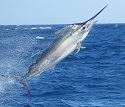 The management of natural resources, whether on land or in water, is an extremely complicated endeavor. Scientists and policy makers have to take into consideration of the countless scientific, socioeconomic and even cultural factors that come into play.
The management of natural resources, whether on land or in water, is an extremely complicated endeavor. Scientists and policy makers have to take into consideration of the countless scientific, socioeconomic and even cultural factors that come into play.
Successful management practices seeks to strike a balance between all of these factors and history has shown that effective management cannot be achieved without incorporating the needs of all the stakeholders who depend on these resources. Without the approval of crucial users, any new rules and regulations are likely to fail to achieve their intended outcomes. In recent years, the controversy surrounding the creation of Australia’s national representative system of marine reserves has demonstrated just this.

Australia’s proposed network of marine reserves.
In many regions, sportfishing is a significant economic driver for local economies in addition to generating tremendous conservation benefits through excise tax and the sale of fishing licenses. In Australia, there are an estimated 5 million anglers that generate roughly AUD $20 million annually for marine conservation, habitat restoration, and enforcement through the sale of licenses alone. Unfortunately, anglers down under have been pushed to the wayside and are threatened with being shut out of more than half a million square kilometers of the Coral Sea.
It has been more than four years since Australia began the process of designing and implementing its national system of marine reserves encompassing all of its federal waters. These reserves are threatening to shut out anglers from iconic billfishing grounds in places like the Coral Sea and have devastating effects on local economies, especially the sportfishing industry. There remains tremendous controversy surrounding the initial design and there is strong evidence against the science and principles used to create the reserves. Most importantly, the needs of important users like anglers were not addressed and government assessments have failed to adequately capture the true impacts these reserves would have. Fortunately, plans to implement these reserves were postponed and anglers have been given a second chance to make comments and be heard in another round of public consultation.

The Coral Sea and adjacent waters are recognized the world over as the most iconic black and striped marlin fishing grounds on the globe. The allure of catching a grander black marlin draws anglers from abroad and is a significant driver of the local economy for regions like Cairns. Unfortunately, economic studies conducted by the Australian government did not assess the importance of recreational and charter fishing. Independent assessments however did reveal that as much as half of the Cairns charter fleet could go out of business and losses could total AUD $15 million annually.
Australia has a strong history of marine conservation, but many question the need to establish marine reserves that prohibit recreational fishing. In the Coral Sea and Eastern Tuna and Billfish Fishery, anglers release 97% of all billfish. Marine reserves will do little or nothing to protect against pollution, climate change, or refuge for highly migratory species which are susceptible to fishing pressure internationally. Prohibiting anglers from these areas however will create significant losses for economies on the order of millions of dollars annually.
Policy makers should comprehensively review all relevant science and the importance of working with important stakeholders like the sportfishing community to ensure maximum economic and conservation benefits. Sportfishermen are key stakeholders in the marine realm that contribute to the conservation efforts. As an avid angler and conservationist, please call on the Australian government to allow sportfishing within all proposed Marine National Park Zones. Let the Australian government know how important sportfishing is to the region. We encourage you to find out more and take action at TBF’s Advocacy Center.
